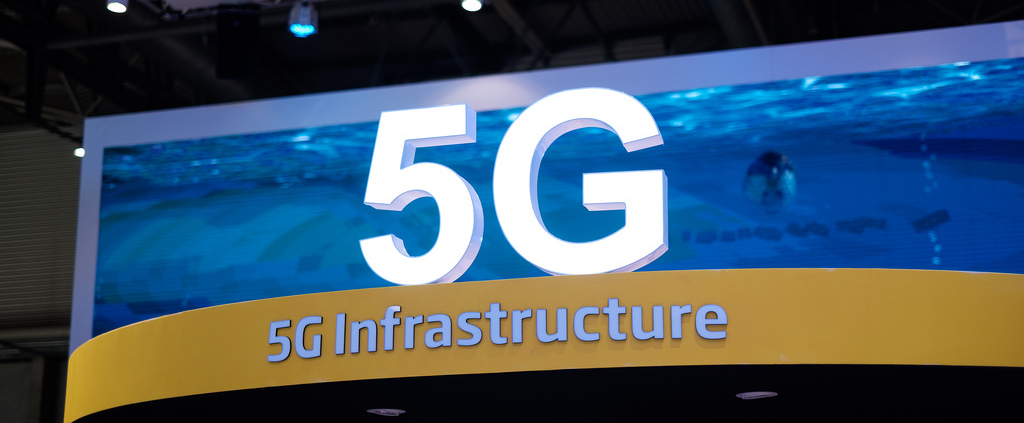Like a 5G, Renewable Ruin, and the Campaign Against Campaign Finance
Here’s What You Need To Know
With the latest confusion surrounding the Trump Administration’s policy on a nationwide 5G network, companies and industry groups got a taste of what will become increasingly common as 2020 approaches: trying to decipher policy cues from both The White House and the Trump reelection campaign when they seem to be indicating different positions on the same issues. For those trying to monitor and understand developments on 5G, such confusion only complicates the issue in the public arena and among stakeholders trying to influence it. So, in an effort to ground the 5G debate, here is what you need to know about the current landscape surrounding this issue:
- What Is 5G, And What Is The Debate About It? 5G, which stands for fifth generation mobile, is simply the next version of the mobile network of communication. As one might expect, 5G will be more advanced than any of the previous mobile networks as it will offer faster speeds and more reliable connections on smartphones and other personal devices. 5G data speeds are expected to be one hundred times faster than 4G networks, and the transition to 5G is expected to be the biggest leap forward in mobile technology to date, particularly because it will enable the Internet of Things (IoT) to better connect devices, vehicles, buildings, and more to the network, transforming many aspects of everyday life. Due to its being such a crucial component of the future generation of technology infrastructure, 5G is the focus of a budding debate over what role the government should play in creating and expanding this technology, with arguments for and against government intervention seeping into the public conversation.
- Who Supports Government Intervention And Why? With China aggressively coordinating and promoting 5G activity, some have argued that the U.S government should play a key role in developing an American 5G network. This messaging has also been used by those who may benefit from federal contracts to provide access to the 5G network, such as the private wireless company Rivada, whose investors include Trump ally Peter Thiel. Perhaps the most notable and influential – given his role as campaign manager for the President’s 2020 reelection effort – supporter of a government role in managing the creation of next generation 5G is Brad Parscale. He has long advocated on Twitter for a nationwide “wholesale” 5G wireless network, not only to compete with China’s build out of this new technology and to eliminate dead zones throughout the U.S., but from a practical, political standpoint: he believes a 5G network connecting rural Americans to high-speed internet would help the President directly speak to a key base of support and turn out the vote.
- Who Opposes Government Intervention And Why? Policymakers who oppose government-led nationalization of 5G networks include White House economic advisor Larry Kudlow and every Federal Communications Commissioner, who believe that wireless companies should lead the buildout of 5G, as they have previous network generations before it. Verizon and AT&T have made huge business bets in building their own 5G networks, and are making the assumption that the current process for securing long-term spectrum leases at FCC auctions will continue. A nationalized wholesale network would mean that airwaves could be made available to users as needed, similar to the electricity market, and would challenge this model. As such, CTIA – a wireless industry trade group representing Sprint, AT&T, Samsung, Intel and others – has said they “completely agree with the administration, the FCC … and congressional leaders that free market American leadership in 5G is vital for our economy, private investment and future innovation.”
- What Comes Next For Interests Engaged On This Issue? After the reversal, confusion, and subsequent walk-back on the part of the campaign and White House relating to 5G, those interests on both sides of the issue have clarified their messaging and sharpened the narratives they’ll be deploying when 5G policy matters again break into the news cycle. Competing with China, free markets and competition, and increased access to faster and more reliable networks, will all be presented to the public, media, and policymakers as key factors supporting one approach or the other. Consumer awareness of 5G continues to rise, and will continue to do so as long as it’s in the news and more networks get up and running, meaning that interests looking to influence public policy should identify, educate, and engage support that can amplify their efforts with key constituencies.
The time when 5G policy was under the radar, centered in Washington backrooms, and confined to memos is over. Time will tell if the 5G debate rises to net neutrality-level hysteria, but with coalitions of support forming and potential motivations for their advocacy being examined in the public arena, it has surely arrived.
News You Can Use
Intolerant Tech
Subscribe to Receive Insights
"*" indicates required fields
A new study from the Lincoln Network appears poised to fan the flames of the so-called “techlash” against Silicon Valley. The liberty-focused technology advocacy group surveyed nearly 2,000 tech employees across the country to determine the state of viewpoint inclusion in the industry. The results? “This survey reveals that while employees at tech companies support viewpoint inclusion, they are also blind to their own intolerance,” according to Lincoln Network’s co-founder and executive director, Garrett Johnson. Nearly half of respondents said their employer promotes a political agenda, while 49 percent claimed this politicized environment affects their job performance.
For an industry that prizes both talent attraction and its freewheeling, innovative culture in equal measure, these results should be a wake-up call; after all, innovation and uniformity rarely mix. Perhaps more alarming: as more and more institutional actors rebel against the conventional optimism surrounding the tech industry, political actors may seize this chance to finally introduce the heavy hand of regulation to Silicon Valley.
Renewable Ruin
Texas’s green dream seems to be meeting reality. In 2016, Georgetown, Texas declared its intention to become the nation’s largest city to run its power grid with 100% renewable energy. Mayor Dale Ross boldly claimed, “Coal cannot compete with wind and solar on cost.” Two years and $30 million later, however, the city is in a bind: cheap oil and gas have dragged down energy prices across the country, forcing Georgetown to sell its surplus energy (drawn from more expensive wind and solar sources) for far less than forecast.
City officials are now frantically trying to renegotiate long-term contracts with local wind and solar providers to soften the fiscal blow, but as one resident said, “Why would [wind and solar companies] negotiate? You have the city over a barrel.” As talk of a Green New Deal roils Washington and Democrats enshrine climate change policy as a key issue for 2020, Georgetown’s example should remind both regulators and the regulated: no government plan survives first contact with the market.
Testing The Deregulatory Waters
Federal financial regulators may be preparing to relax filing restrictions again, a potential boon for successful startups looking to venture into public financing. In 2017, the SEC expanded to companies of all sizes a provision originally designed to allow “emerging growth companies” to confidentially file draft registration forms with the SEC. The easing of the size requirement allowed hugely successful startups like Pinterest, Uber, and Lyft to prepare for an IPO without the weeks of public scrutiny that traditionally accompanies such an event as the firm and regulators hash out details in the filing process.
Now, the Trump Administration is considering dropping a similar size limit on the so-called “testing the waters” provision, which allows emerging growth companies to consult institutional investors before going public. Needless to say, the move would substantially reduce the reputational risks of going public, allowing companies to secure reasonable assurance of the availability of public funding.
In addition to providing another data point for the deregulatory trend of the current administration, the SEC’s proposed rule change underscores the latent power of federal agencies over the market while broadening the public’s ability to invest in and reap rewards from these firms’ economic success.
The Campaign Against Campaign Finance
Congressional Democrats voted this week on their first introduced bill of the new Congress, the For The People Act (H.R. 1). The 571-page bill claims to be about strengthening democracy, but has drawn the ire of groups on both sides of the aisle, including even the ACLU, which warns the bill contains “provisions that unconstitutionally infringe the freedoms of speech and association.” The bill aims to gut the existing federal campaign finance system by, among other provisions, instituting a government-funded 600 percent match for “small donors,” reducing the Federal Election Commission from a bipartisan six-member body to a partisan five-member body, and forcing political groups to disclose the names of donors above $10,000.
This last “reform” presents a unique challenge to the rights of private citizens to freely associate themselves with political causes and could chill free speech. Under the proposed system, individuals and any affiliated organizations open themselves up to further reputational risk with every political contribution. One doesn’t have to look beyond the past decade to find examples of private citizens exercising their First Amendment rights by donating to their preferred political causes and candidates, and then being subsequently and unfairly attacked in the public arena by politicians for doing so. Rather than a high-minded moved to “drain the swamp” in the name of ethics, this bill appears more to be an effort to intimidate and defeat their political opponents.



